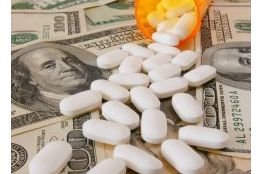
Foreign firms will need FIPB approval for acquiring more than 49% stakes in Indian pharma companies
India's pharma industry, mainly comprising generics has got a breather. The government in India has decided to cap brownfield foreign direct investment in pharma at 49 percent, allaying fears of multinationals taking over the domestic pharma industry in a flurry of acquisitions. Now, a stake beyond 49 percent will have to get approval from the country's Foreign Investment Promotion Board (FIPB)
While the domestic industry is catching its breath and recouping to strategize further, multinationals snapping at the doors of the "great India market", are crying hoarse over the government's protectionist stance.
In fact, the move has evoked fairly severe criticism from within the country itself. Industry analysts cite government's regressive stance, a reversal of liberalization policies being followed since the 90s, as the cause for the recent sharp dip in foreign direct investment (FDI). The cap in FDI, according to them will limit pharma industry growth.
The overall FDI in India, in May 2012, was down to $1.3 billion as compared to $4.6 billion for the corresponding period last year. With the GDP growth forecast of 6.5 percent, which is a nine-year low itself, this FDI contraction will only add to the inflation - should the complex interaction of commodity and oil prices, and a weak domestic currency come into play.
In spite of all this gloom forecasted by all, I would say the pharma cap at 49 percent is a move in the right direction, given how vibrant the domestic generics industry is in the country and the growth potential it is set for in the following 10 years. It makes perfect sense to cautiously culture the industry. Some protection and regulation of competition is in order, and is a boost for the domestic industry. It also is probably this industry's last opportunity to get ready for the global market.
This move pending final approval from the Prime Minister's Office (PMO) will impact the pharma industry complexion. The rush for acquisitions will now most likely alter into a flurry of licensing deals and equity partnerships. Since India remains the emerging market, business will find a way. In fact, the Indian pharma sector has already seen six proposals worth $137 million approved by the FIPB since January 2012, showcasing that this step is not growth bottleneck for the industry, as long as the approval process is speedy.
However, ensuring affordable healthcare in the country is a different matter altogether and is not linked to FDI in pharma. A price control mechanism might be a better way to achieve that. Or is it? Big pharma has already recorded its displeasure at the Indian government's attempt to regulate innovator drug prices. A committee set up to study the drug pricing mechanism has announced that it will put its recommendations in the public domain in a month or so.
With an agenda to implement a $5.4 billion free generics medicines plan the government is focusing on improving healthcare in the country. It is unlikely to stop with the current regulation of the prices of 348 essential medicines. There is more debate in the works and in the eye of the storm is - big pharma.




